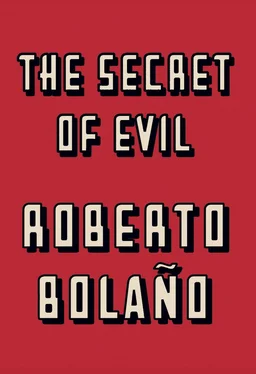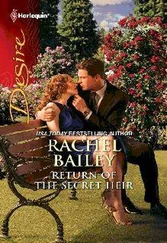My name is Daniela de Montecristo and I am a citizen of the universe, although I was born in Buenos Aires, the capital of Argentina, in the year 1915, the youngest of three sisters. Later my father remarried and had a little son, but the child died before his first birthday, and Papa had to be happy with what he had, that is, with my sisters and me. I don’t know why I’m explaining all this. It’s ancient history, or children’s stories if you like, of no interest to anyone now. I lost my virginity at the age of thirteen. That might interest someone. I was deflowered by one of the ranch hands. I can’t remember his name, all I know is that he was a ranch hand and must have been somewhere between twenty-five and forty-five. He didn’t rape me, I do remember that. At least I never thought of it as rape, afterward I mean, when it was over, and I was getting dressed behind an ombu tree, and the ranch hand, around the other side, was pensively rolling a cigarette, which he then lit and gave me for a couple of puffs on it, my first ever puffs of smoke. I remember that vividly. The bitter taste of the tobacco and the plains stretching away endlessly and my legs trembling. What was really trembling, though, were my thoughts. I could have gone and told on him. All that night I kept turning the idea over in my mind, and the next two nights as well. But I didn’t do it. Partly because I wanted to repeat the experience. Partly because it wasn’t my father’s ranch; it belonged to one of his friends, so the punishment wouldn’t have been administered by my blood relations, it would have fallen outside what I took to be the ambit of real justice, the justice of the blood. My father never had a ranch. My older sister married a lawyer, a pathetic shyster who never tired of declaring his inordinate love for my father. My other sister married the son of a ranch owner, a crazy kid who within a few years managed to gamble away a small fortune and get himself cut out of the will. To sum up: my family was always middle class, and whatever efforts we made, from our various starting points, in our various and often contradictory ways, to climb up a rung and enter the rigid, immutable upper crust, official guardian of justice and morality, the fact is we never moved out of our social compartment, which, although comfortable, condemned the livelier minds in the clan (myself, for example) to a restlessness that even then, at the age of thirteen, on that ranch, which wasn’t our property, I could glimpse like a dizzying mirage, a space in time where time itself was cancelled, time as we know it, and that was why I began by saying that I am a citizen of the universe and not, as the saying goes, of the world, because I may be old but it should be quite clear that I’m not stupid, and the world cannot contain a dizzying mirage like that, although perhaps the universe can. But I was talking about restlessness. I was talking about the night when I thought about telling on the ranch hand who had deflowered me. I didn’t, and I didn’t have sex with him again. Restlessness, my first apprehension of restlessness, declared itself as a fever, so my father sent me back to Buenos Aires, where I was entrusted to the care of a physician, Dr. Guarini.
The previous summer I’d been a temporary foster parent to a child from the Third World. It was a terrible experience. When I took her to the airport I was a wreck, and Olga (that was her name), she was a wreck as well. We cried all the way, we didn’t stop for a minute. She kept sobbing that she wanted to stay with me, the poor thing. Just as well there were no photographers. Even so, I stayed in the car for a while, fixing my makeup, before we got out. The man from the NGO who was there to take the children back was waiting by the information counter. He looked at me and realized right away that I was taking it hard. It’s normal, the first time, he said. There was another girl there with her foster family. In spite of the dark glasses, they recognized me immediately. The mother came over and said: It gives us such a boost to know that you’re taking part in the program too, Lucía. I had no idea what she meant, but I smiled and said I was just another volunteer. Half an hour later the children and the man from the NGO boarded the plane and disappeared, leaving the foster parents in the departure lounge. One of them suggested that we go for a drink. I declined. I shook hands with all of them (no kisses) and left. In the car I cried all the way back to my apartment, but two days later I had to go to Milan, for work, and I spent August in Marbella and Mallorca. Eventually the summer came to an end and work began again in earnest.
And all sorts of things happened after that.
Eight months later the same NGO wrote to me to see if I wanted to foster a child again in July. I thought about it all that day, carrying the letter around in my handbag, and eventually decided to repeat the experience. I called them and said I’d participate again, as long as they did whatever they could to make sure it was Olga. They said they’d try, but the organization had a rule, or something — I didn’t understand. Call me, I said. A month later they called and said they were doing their best to get Olga. At that time I was acting in a play, a wonderful English production, a musical about the poor people of London, or maybe it was Manchester, set at the beginning of the century, a play in which I had to sing and dance as well as act. For some reason, talking with the people from the NGO helped me with my work. It was just after the première and the reviews hadn’t been very good. Especially the comments about me. Well, not just me; some of the other actors came off badly too. After that phone call my performances improved; they were stronger, more convincing, and the others were inspired by my energy on stage.
Then I was offered a television show. I said yes without a second thought.
Then I met a doctor in Madrid called Gorka (his family came from the Basque country) and we fell in love.
To be completely honest, for a while I forgot all about the girl and the NGO. I was living at a frantic pace: interviews, TV appearances, a small but gratifying part in a film, and my own talk show with celebrity guests (actresses, models, athletes, heartthrobs).
One morning they called and said that Olga wouldn’t be able to spend her vacation month with me. Why not? I asked, although for a moment I had no idea who Olga was, what vacation month they were talking about, or who had called to tell me this and was now replying to my question in a condescending tone of voice that I didn’t like at all, explaining something about regulations, which left me even more confused. When I finally realized what it was about, I said I didn’t have time to talk right then and told them to call me back the following night, insisting that I wanted Olga. We completely understand, said the voice: It’s human, it’s normal.
Having reached this point in my story, there’s something I think I should clarify. There are show-business personalities who’ll stop at nothing to appear on TV and in the magazines. Generalizing broadly, they belong to one of two kinds: those who are working and those who aren’t. Those who are working might go to a leper colony in India to promote their new record or TV show. The others can’t afford to fly to India, but they might visit an orphanage in Tangiers or a prison in Rabat to keep themselves visible and boost their chances of getting some work soon. Not that either kind of personality necessarily goes to India or Morocco — those are just examples I’m using to make a general point: fame is measured in exclusives, calibrated by the size of the splash you can make with a scandal or a spectacular act of charity. But there was no such design behind my decision to foster a child for the month of July. No one knew anything about it, I mean no one who works for the glossy magazines. Olga’s stay at my apartment was a secret, and during the days we spent on Mallorca with my family we kept well out of the public eye. I play the bimbo sometimes, if it’s in the script, but I went to college and I earned my degree in art history.
Читать дальше












